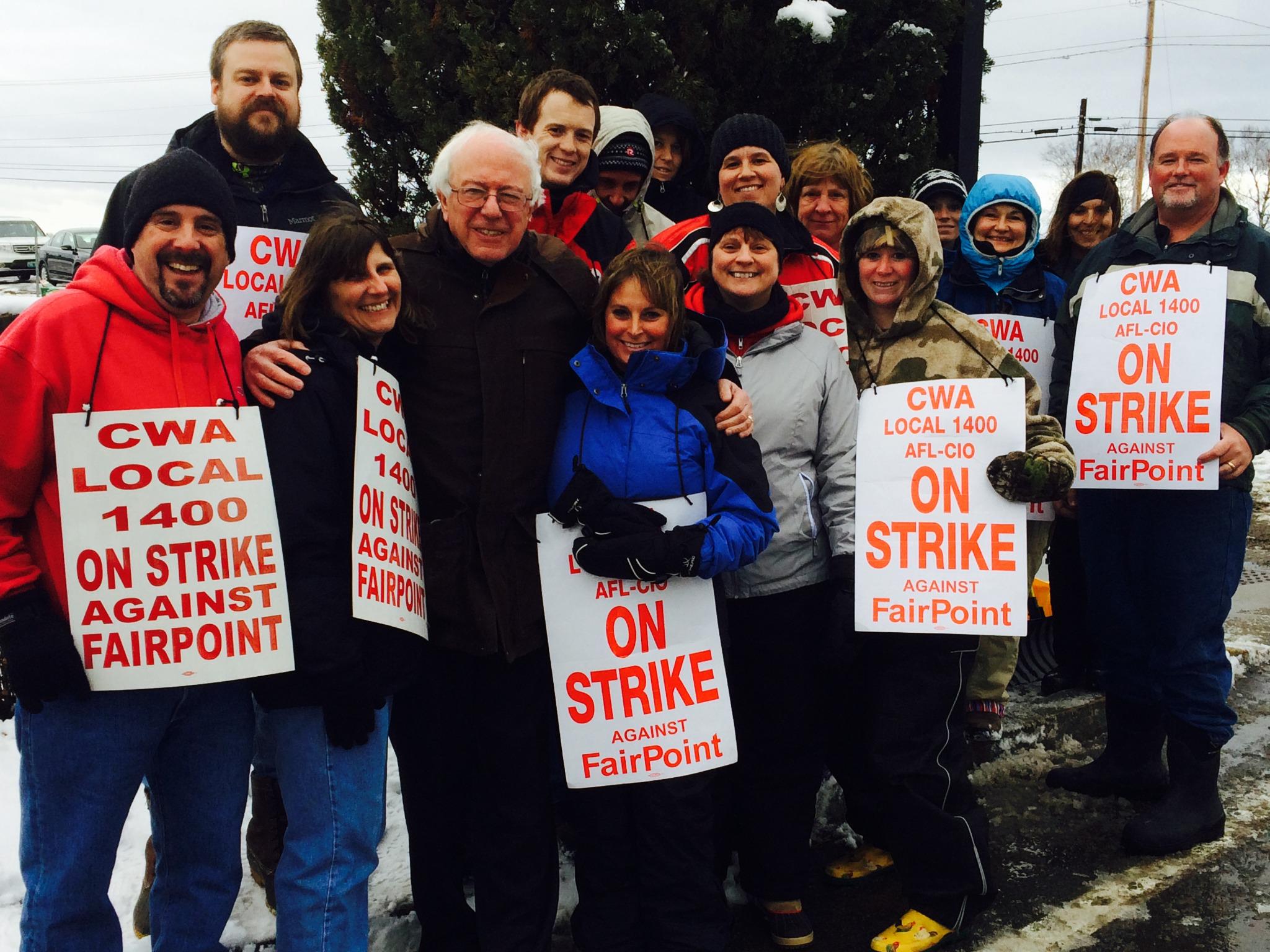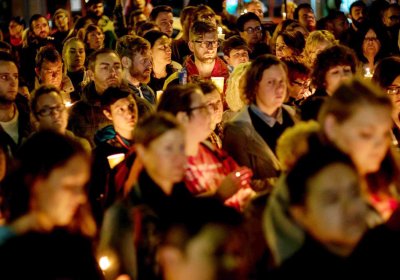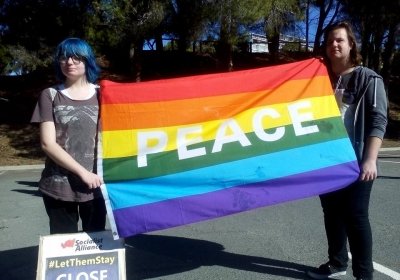 Everyone has a story about Muhammad Ali. For me it was as a young Black high school student in Detroit. I had already seen the wrongs of imperialism and its wars — and of course the racism Blacks faced in Detroit.
Ali as a Black man and Muslim was a powerful symbol of courage. His willingness to give up his boxing career in the 1960s to stand with the Vietnamese against the US government waging war on them reflected the stirrings of militant Black pride growing in Detroit.
Everyone has a story about Muhammad Ali. For me it was as a young Black high school student in Detroit. I had already seen the wrongs of imperialism and its wars — and of course the racism Blacks faced in Detroit.
Ali as a Black man and Muslim was a powerful symbol of courage. His willingness to give up his boxing career in the 1960s to stand with the Vietnamese against the US government waging war on them reflected the stirrings of militant Black pride growing in Detroit.
1098
 Everyone has a story about Muhammad Ali. For me it was as a young Black high school student in Detroit. I had already seen the wrongs of imperialism and its wars — and of course the racism Blacks faced in Detroit.
Ali as a Black man and Muslim was a powerful symbol of courage. His willingness to give up his boxing career in the 1960s to stand with the Vietnamese against the US government waging war on them reflected the stirrings of militant Black pride growing in Detroit.
Everyone has a story about Muhammad Ali. For me it was as a young Black high school student in Detroit. I had already seen the wrongs of imperialism and its wars — and of course the racism Blacks faced in Detroit.
Ali as a Black man and Muslim was a powerful symbol of courage. His willingness to give up his boxing career in the 1960s to stand with the Vietnamese against the US government waging war on them reflected the stirrings of militant Black pride growing in Detroit.
More than two-thirds of Brazilians assess the coup government of acting president Michel Temer unfavourably and 32% think he is even worse than expected, a new poll by Vox Populi revealed on June 14.
Temer has been acting president since elected President Dilma Rousseff was suspended by Brazil’s Senate through an impeachment process viewed by many as a right-wing coup.
Temer was already a widely unpopular politician in Brazil. However, his first month as president and a series of unpopular measures, as well as a few scandals, have pushed his approval ratings even further south.
Huge strikes and protests are rocking France, with the threat of greater shocks to come as a hated labour law “counter-reform” is debated in the French Senate.
The Socialist Party government is trying to force through the so-called El Khomri law, which would eliminate long-held workers’ protections. But the law has stirred huge resistance, expressed in different forms, from the occupation of public squares called the “Nuit Debout” (Up All Night) to a revival of mass working class action, including general strikes.
Zero K
By Don DeLillo
Simon & Schuster, 2016
Don DeLillo is known as one of America’s great authors, standing out for his effortless wisdom. So, now at 81, it is of no surprise that DeLillo tackles death and immortality in his recent novel Zero K.
Having foreshadowed the horror of 9/11 (Underworld), the Great Financial Crisis and Occupy Movement (Cosmopolis) and the anthrax scare (White Noise), Zero K is his literary prophecy of the commodification of the last dignity: death.
More than 20 students were injured at the University of Papua New Guinea (UPNG) in Port Moresby when police opened fire on students protesting against corruption on June 8. Several of those injured remain in a critical condition.
Students have been protesting and boycotting classes since May 2. The students were demanding the resignation of Prime Minister Peter O'Neill over corruption allegations and authoritarian moves to block investigation of the allegations.
The Spanish and European establishments have just days to stop the advance of the progressive electoral alliance United We Can in the June 26 general elections in the Spanish state. How are they doing? As matters stand, not well.
United We Can, formed in early May, brings together new anti-austerity party Podemos and the longer-standing United Left (IU), as well as broader coalitions in Catalonia (Together We Can), Galicia (In Tide) and Valencia (A La Valenciana).
AMWU members at Bitzer have gone back to work in triumph after a nine-week strike at the refrigeration firm ended with them winning a vastly improved deal while killing off harsh company demands.
The 54 workers won a deal that extends the 36-hour working week to everyone, provides for two RDOs every month, gives pay rises of 10% over three years, guarantees permanency for casuals after six months service and control over the hours they work.
LGBTI communities everywhere are reeling from the loss of the 49 people gunned down in the Orlando nightclub Pulse. In addition, 53 were injured.
Some of them no doubt are deeply missed by their families. Even worse, as is true in many LGBTI communities, some of them would have lost their family ties years ago. The other patrons at the Pulse nightclub may have been the only family they had.
A vigil was held for the victims of the massacre in Orlando, US, at the St Therese Catholic Church in Wollongong on June 14. In an emotional ceremony, about 200 people joined together on a cold night to pay their respects to the victims and to lend support to the LGBTI community, who have been left reeling after the atrocity in Florida.
The event was organised by Unity Wollongong, a local non profit organisation that provides support to the LGBTI community and their families.
Hillary Clinton and Donald Trump reacted to the June 12 Orlando shootings, in which 50 people were shot dead at the Flordia gay club Pulse, with evidence that they can agree on at least one thing: bombing people. Both presidential candidates called for an escalation of the US-led bombing campaign against ISIS in Syria and Iraq.
“We have generals that feel we can win this thing so fast and so strong, but we have to be furious for a short period of time, and we’re not doing it!” Trump complained on Fox & Friends on June 13.
 Bernie Sanders joins striking FairPoint workers on the picket line in South Burlington, Vermont, January 18.
For a year now, presidential candidate Bernie Sanders has been the hope of millions in the United States. He has been the hope of people disgusted with the role of the banks and corporations in politics, angered by growing inequality, appalled by racial injustice and opposed to a foreign policy based on military intervention.
Bernie Sanders joins striking FairPoint workers on the picket line in South Burlington, Vermont, January 18.
For a year now, presidential candidate Bernie Sanders has been the hope of millions in the United States. He has been the hope of people disgusted with the role of the banks and corporations in politics, angered by growing inequality, appalled by racial injustice and opposed to a foreign policy based on military intervention.
“Oil didn’t wreck Venezuela’s economy, socialism did.” That’s what Pascal-Emmanuel Gobry, of the Washington-based conservative think tank Ethics and Public Policy Center, wrote earlier this year in his reflection on Venezuela’s deepening economic crisis.
Gobry, a prolific writer for Forbes and the Wall Street Journal, criticised Venezuelan analysts who scapegoat oil, even though he recognised that declining oil prices have aggravated the nation’s difficulties.
“The culprit is clear and obvious,” Golbry contends. “The problem is Venezuela's authoritarian socialism.”
- Page 1
- Next page









